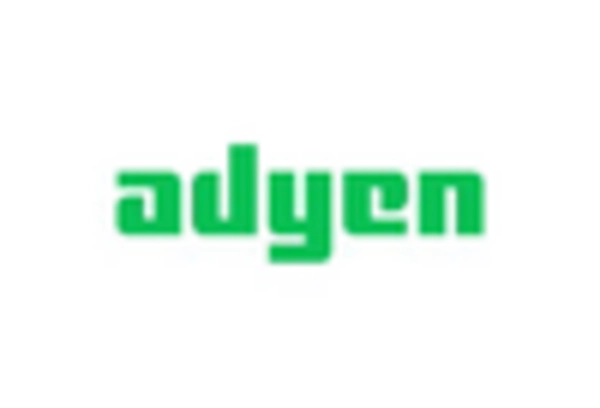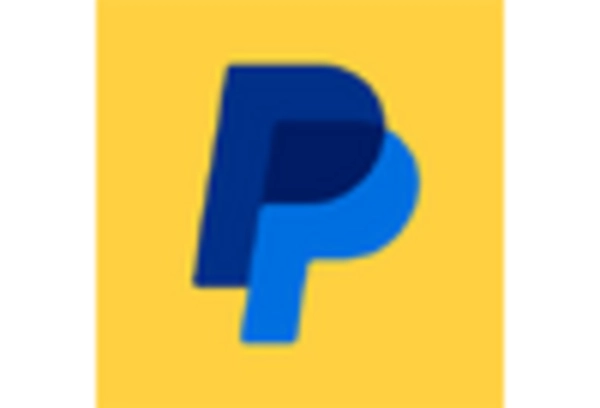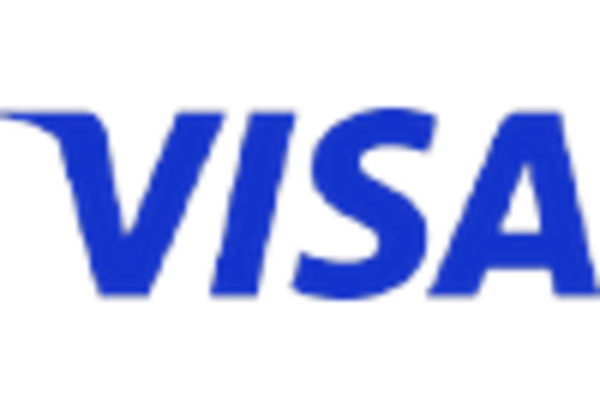Rise of E-commerce and Digital Services
The growth of e-commerce and digital services is significantly impacting the real time-payment market in Canada. With online shopping becoming increasingly prevalent, the demand for fast and secure payment methods is on the rise. In 2025, e-commerce sales in Canada are projected to reach $50 billion, further driving the need for real time payment solutions. This trend is encouraging retailers to adopt advanced payment technologies that facilitate instant transactions, thereby enhancing customer satisfaction. Consequently, the real time-payment market is likely to benefit from the ongoing expansion of digital commerce.
Consumer Demand for Instant Transactions
Consumer behavior is evolving, with an increasing demand for instant transactions in the real time-payment market. Canadians are becoming accustomed to immediate gratification in various aspects of life, including financial transactions. A recent survey indicates that approximately 70% of Canadians prioritize speed when making payments. This shift in consumer expectations is compelling financial institutions to adapt their services accordingly. As a result, the real time-payment market is poised for growth, as businesses strive to meet the needs of a more impatient consumer base seeking quick and efficient payment options.
Increased Financial Inclusion Initiatives
Financial inclusion initiatives are playing a crucial role in shaping the real time-payment market in Canada. Government programs aimed at providing access to banking services for underserved populations are fostering a more inclusive financial ecosystem. As more individuals gain access to digital payment platforms, the demand for real time payment solutions is expected to rise. Reports suggest that by 2025, the number of Canadians using digital wallets could increase by 40%, indicating a shift towards more accessible financial services. This trend is likely to drive growth in the real time-payment market as it caters to a broader demographic.
Technological Advancements in Payment Systems
The real time-payment market in Canada is experiencing a surge due to rapid technological advancements in payment systems. Innovations such as blockchain technology and artificial intelligence are enhancing transaction speed and security. In 2025, it is estimated that over 60% of Canadian consumers will prefer digital payment methods, reflecting a shift towards more efficient financial transactions. The integration of these technologies not only streamlines payment processes but also reduces operational costs for businesses. As a result, the real time-payment market is likely to expand, driven by the demand for seamless and instantaneous payment solutions.
Competitive Landscape Among Financial Institutions
The competitive landscape among financial institutions is intensifying, significantly influencing the real time-payment market in Canada. Banks and fintech companies are increasingly vying for market share by offering innovative payment solutions. This competition is leading to the development of new features, such as enhanced security measures and user-friendly interfaces. As institutions strive to differentiate themselves, the real time-payment market is expected to witness substantial growth. In 2025, it is anticipated that the number of real time payment transactions will increase by 30%, reflecting the impact of this competitive environment.
















